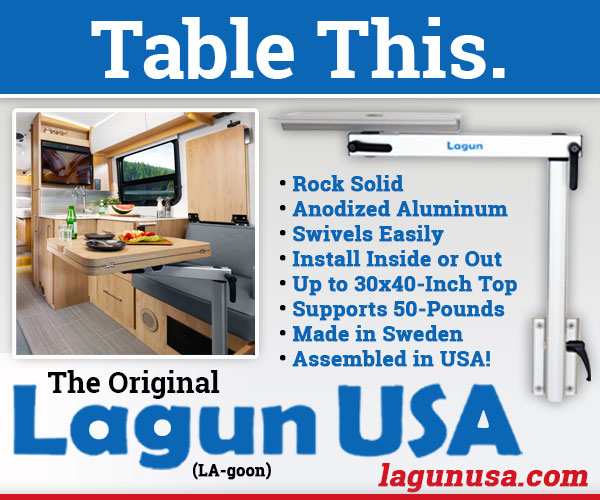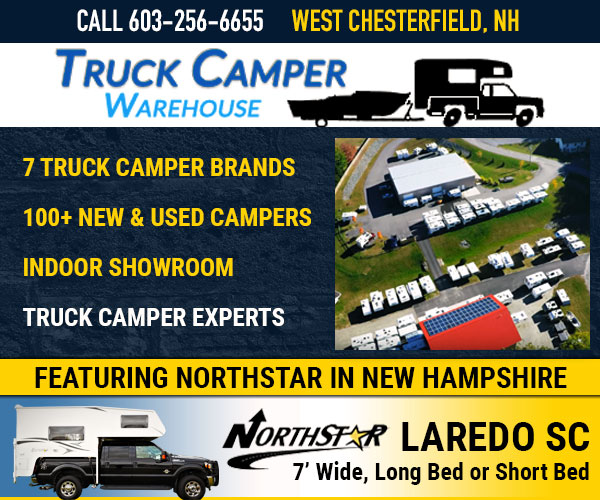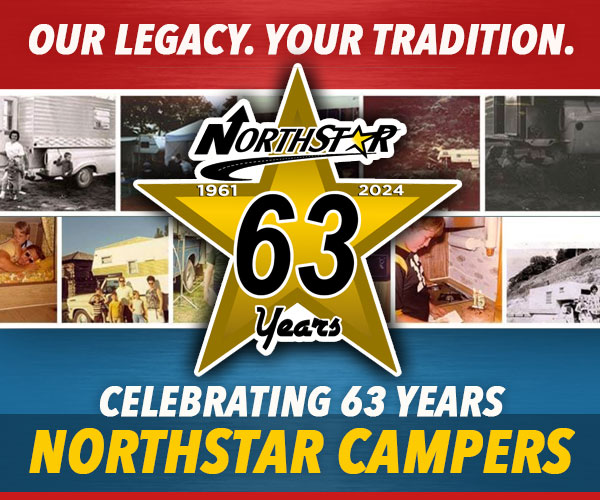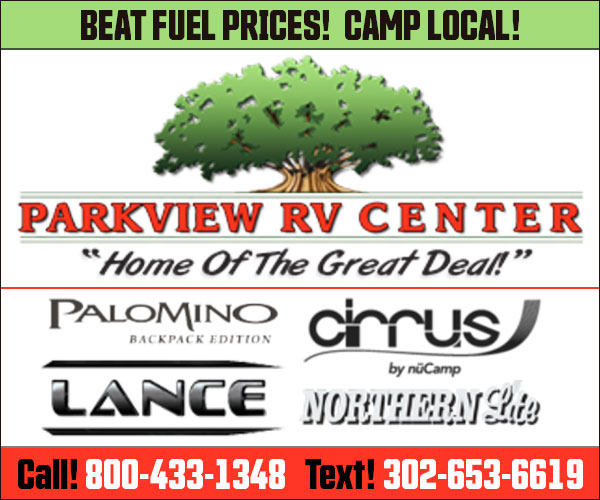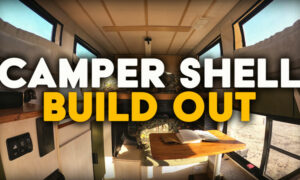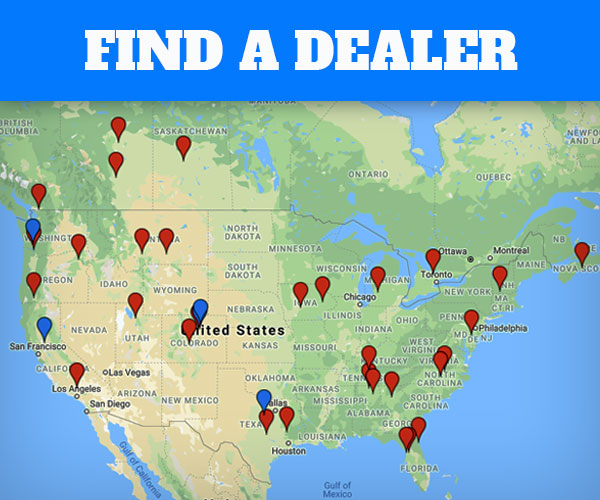This week’s Question of the Week was, “How do you save money while truck camping?” Thirty readers give advice on how they save money while they’re on the road.
“The two most costly expenses for truck camping are fuel and campground fees. We carefully watch the fuel prices at major truck stops, and purchase from Flying J. They establish an accurate benchmark for local fuel prices. Also, our iPhone has the GasBuddy and WEX Connect apps, which track local fuel prices.
While in transit, we use Flying J for overnight camping since it is secure. Walmart is an option, but security is an issue for us. We prefer BLM, Forest Service, and Corps of Engineer parks for extended stays. Otherwise we try to locate cost effective commercial campgrounds.
Food is a concern. We have a six cubic foot refrigerator. We shop at Walmart and national chains. We buy as much frozen items as possible to utilize the freezer space. We frequent local produce and fruit stands for fresh items.” – Warne Todd, 2000 Ford F250, 2005 Lance 981
“We save money by boondocking, eating in, staying in one place for a week or longer to conserve diesel, and using our towed vehicle to explore the points of interest in a radius of 250 to 300 miles from our base camp. Even if we have to spend the night somewhere before returning to our base camp, it’s cheaper than moving the rig. We plan our shopping trips around Costco or Super Walmart locations because they usually have large parking lots to accommodate our rig and flat-towed vehicle.” – Scott and Tina Elliott, 2007 Ford F350, 2013 Chalet TS116
“In addition to slowing down to save fuel, we also use GasBuddy to find the lowest cost fuel as we are approaching a location where we know we will need to fill up. We will not drive very far out of the way to save a dime, but often two or three blocks can make a difference. Also, maintaining proper tire pressure will save fuel as well as adding a measure of safety.
We almost always fix our own meals to save on food costs, but do eat out sometimes to experience the culinary flavor of the area we are in. We do stay in campgrounds most of the time, but use Passport America and Good Sam discounts as much as possible. Also we don’t stay in the resort campgrounds. We choose the off-the-beaten path campgrounds like city or county parks. We have also found fairgrounds with limited RV hook-ups.
We do plan on doing more boondocking on our trip to Alaska this summer, and staying in state and national parks. However, the price per night at a lot of these locations is comparable to a private campground.” – Eldon Rhodes, 2008 Chevy 3500, 2011 Lance 1050
“Years ago I would save money by just working more. When I was working I would not have time to go out and spend money. Now that I am retired and traveling in my truck camper, I spend more time out in the remote and rural areas, rather than lingering in town, where I can spend money. I plan better when I go into town, as I can only bring so much back on my motorcycle. I like exploring areas I travel through, talking to local people to find out the best places to check out. By this routine, I drive less and save the cost of fuel I would be using by driving more. I explore more, so I am out of my truck camper more, and snack less and eat at typical meal times.” – Bryan, 2008 Ford F550, 2009 Lance 1191
“Planning the route from home, cheap service stations, free overnight searches, bringing food from home, and if possible, avoiding toll highways. I cruise for the lowest consumption of fuel and have optimum tire pressure. I do not have external packages and I drive with the windows closed.” – Fred Amoros, 2011 Toyota Hilux, 2011 Azalai
“My wife and I eat out about half the time. We’re always on the lookout for some famous or written about eatery, especially BBQ. The rest of the time we eat in. Certainly that is a cost savings but, if your goal is cost savings, then stay home.
I only travel between two hundred and three hundred miles per day. My wife is on the cell phone sorting out places and we always ask for a discount; senior, military, Sam’s, AARP, you name it. If there are no discounts, we probably won’t stay there.
Walmart offers a cash gift card. It’s free to to buy. Just ask for it and load it with money. We use our credit card to purchase it and get miles for that on the credit card. Many Walmarts have fuel stations, many of which have diesel. You always get a discount when you use your Walmart Gift card, anywhere from five cents to fifteen cents. Learn more: http://www.murphyusa.com/Get-Deals/ When you are filling up a thirty-seven gallon tank of diesel on a multi-thousand mile trip, saving a few cents per gallon adds up.
Ask the RV park for any cut rate slots. Truck campers can squeeze in where most cannot. We stayed at a high dollar downtown RV park in a major city. They have two slots that, with our discount, are almost half price because they are close to the street, have no cable television connection, no parking area, no picnic tables or sewage connection, but it’s free to dump when you leave. Our truck camper fits fine, and there is plenty of room to park in front of the camper with the truck bed under the camper nose. We have a pop-up television antenna and, being in town, there is no shortage of stations. They have a nice shower/bathroom only about seventy-five feet away. We stay there often for about twenty dollars a night when everyone else is pays about $40+. But you have to ask to get it.” – Don Pryor, 2011 Ford F350, 2009 Arctic Fox 1150
“First, I boondock and stay at Walmart, not at campgrounds. I heard some campgrounds in the Okanagan, British Columbia, and Canada Interior were charging over $100 per night during peak season.
Second, I cook and eat in the camper instead of eating out. Third, I drive at 90 kilometers an hour (55 miles per hour). My trip computer says I am getting twenty miles per gallon, but I’m not sure how accurate it is. And, yes, that is my truck and camper slowing you down. In Alberta, it seems like you’re upsetting drivers when you’re going slower than 130 kilometers per hour. (80 miles per hour)” – Bruce Neumann, 2006 Dodge Ram 3500, 2008 Okanagan 96DB
“There’s no additional cost for food since we eat about the same as when we’re at home. We sometimes save on fuel by keeping our speed to 65 instead of 75 (gives us about three miles per gallon extra, and we’re often in no hurry).
We also tend to stay in one place for three or four days, which also minimizes fuel costs. We always stay in forest service campgrounds or on BLM land so cost is between free and $5 a night, maybe $10 if we want electrical service. We’ve never stayed in a commercial campground as there’s never been a reason to do so.” – Phil Rodacy, 2012 GMC 3500, 2006 Okanagan 90W
“Use the GasBuddy app to find the lowest diesel prices. Belonging to Passport America and Thousand Trails clubs when staying at a campground is required. Otherwise, boondock as much as possible at Cracker Barrel (my first choice) and Walmart (second choice).” – Don Kingfield, 2008 GMC Sierra 2500HD, 2008 Lance 861S
“We try to stay off of interstates. We drive slower and get better fuel economy. We also often find less expensive food and fuel off the beaten path, and more interesting things to see. With our small, twenty foot long, self-contained rig, we ask if we can park in the tent area and save a few dollars. It is sometimes a little tight, but we find the spots nicer than the ones intended for big rigs.” – Jeb NY, 2000 Ford F250, 2005 Shadow Cruiser pop-up
“Keeping your speed at 55 miles per hour saves on diesel. I also save money by advance planning for boondocking or parking at Walmart. Meals are prepared at home, frozen and microwaved with little generator time by hibachi cooking.
I use good timing to not get into heavy traffic, correct tire pressure is checked daily, and finally a daily weather check to ensure I’m not running into strong head winds. If head winds are strong, then see the local sites (some great adventures have resulted) until the winds die down.” – Cliff Cizan, 2010 Dodge Ram 3500, 2013 Arctic Fox 1150
“We park in numerous locations that are authorized including scenic areas, farms, out of the way beaches, and Cracker Barrels. We like the savings. It’s not just about the savings, but also the privacy that it provides. That’s why we are now truck campers. The conversations at commercial campgrounds seem to be about how big everybody’s rig is and not about the adventures or experiences.
We really enjoy saving dollars and not losing the experience. We eat most of our meals in our truck camper for lower food costs. We drive at slower speeds. Running our generator when needed while free parking is fine with us.” – Bob and Linda Robinson, 2002 Chevy 2500, 2010 Travel Lite 960RX
“First, I purchase drinks, like soda and juice, at the local grocer, and keep them them cool in the fridge. Second, I purchase fuel in the town rather than the Freeway stop. Fuel is often far cheaper just a mile or two down the road. When I need supplies, I go into town and shop at a local grocer, or even better, a road side fruit stand. I’d also like to say that I eat very well on the road.” – Geof Thompson, 2008 Ford F250, Sun Valley Apache
“We never stay at motels and rarely eat in restaurants. We stay in relatives’ driveways for free and at National Park campgrounds where we get the senior discount. While on the way to our destinations we mostly don’t stop at campgrounds because it is more convenient to just stop at a parking lot near the highway. Our intent is to simply spend the night sleeping and get back on the road early. All of this is not so much to save money as for the convenience of it. That is why we enjoy our truck camper so much.” – Allen Brummel, 2008 Dodge Ram 1500, 2008 Northstar TC650
“When boondocking (most of the time) I find downed wood and cook over the open fire. This will mess up your pots and pans if you do not know how to prep them. You must put liquid dish soap on the bottom and sides, let it dry, and then you will not get a smoke build up. The smoke will come off when you wash the pot. No need to use propane or charcoal.” – Phil Olson, 2011 GMC 2500, 2013 Lance 992
“I use the truck hauling firewood to make money before we go out with the camper. It’s usually enough to pay all the fuel used. You have a truck, so why not use it for something when you’re at home?” – Ken B., Dodge 2004.5 3500, Northstar Arrow
“I buy items that can make up to two meals at a time. I make a grocery list and stick to it. Necessities first and then the thought about extras. What do we really need? Saving on fuel means driving less than the speed limit and maintaining speed. Camping costs are kept low because we usually use state parks and national forests.” – Helen Scurzi, 1991 Chevrolet 3500, 2008 Lance 9’11”
“To start with, we make sure our vehicle is well maintained and check important things such as tire pressure. We try to pre-plan our routes so we aren’t wasting miles driving around. The biggest savings would be boondocking, preparing our own meals, and driving as close to the speed limit as possible.” – Craig Davis, 2013 Dodge 3500, 2013 Arctic Fox 990
“Boondocking and using an ARB style solar refrigerator can help on a lot of the propane cost. Yes, fuel is my biggest cost. I do not eat out, and I stay in one place many days, using an ATV to explore an area. I desert boondock sixty days a year, never go to a city, and budget for gas.” – Bill Close, 2014 Dodge Ram 3500, 2012 Lance 850
“Boondocking is the way to go for the big savings, but sooner or later you have to get fresh water. Try to tie it in with a trip to replenish food or go to a movie. You can always find some place to fill up water. That can save up to $10, which adds up on a long trip.” – Dave and Lila Weinstein, Dodge Ram 3500, Arctic Fox 1150
“Put your truck camper on a diet. After we traveled for six straight months, we jettisoned everything we had not used in that time and must have shed well over one hundred and fifty pounds! Also, only fill the fresh water tank with enough water to get you through the next stop. Excess water is more weight!” – Charles Coushaine, 2001 Ford F350, 2012 Chalet DS116RB
“We use our iPod apps. We use Road Trip to track our expenses and GasBuddy for the lowest fuel prices. All Stays and Passport America are great for campgrounds. We use State Lines to get info on laws for rest area overnights.” – Phil McEachen, 2000 Ford F350, 1998 Bigfoot 3000
“We keep our speed at about 65 miles per hour. We mostly cook in our camper. We use Passport America’s membership to get fifty percent off camp spots.” – Joseph Moreno, 1998 Chevy 3500, 1999 Lance 1130
“I have a friend who is pretty handy at doing electrical work help me add an extra breaker and a receptacle in my garage. Whenever I have a trip planned, I can hook-up my camper the night before and get the refrigerator cooled down, which usually takes about eight to twelve hours. This advantage was cool, at first, but I quickly found out that whenever I would hook-up my camper the night before a trip, my next electric bill would be, on average, fifty to seventy dollars higher than normal. Ouch. That adds an indirect cost to my camping trips, which are already expensive enough to begin with.
After taking it in the shorts twice, I decided that I’d load all my food and drinks into regular coolers, ice them down down really well and then wait until I reached my camping destination and then hook-up to the campsite power as soon as I arrived. After all, I’m already paying for a site with electric hookups, right? Why not let the camp power handle the cooling down of my refrigerator. And then, as the temperature inside the refrigerator reaches a suitable level, transfer the food and drink items from the coolers to the refrigerator. This is an easy way to reduce the cost of a camping trip by saving money up front.” – Gus, 2011 Chevy Silverado 2500HD, Lance 865
“Our biggest expense is fuel. We get around ten miles per gallon no matter what speed we go. We try to find National and State parks that have lots of hiking, biking, and other activities so we can park the truck for extended times.” – Don and Sue Graf, 2008 Ford F350, 2013 Arctic Fox 865
“To save money, I boondock, stay at friends or relatives places, church yards, sometimes at Walmart, and some places in Canada just off the road at pull-offs.” – John, 2011 Ford F250, 2008 Okanagan
“I take it easy and drive about 60 miles per hour at best. Mostly I stay on the side roads and off the interstate. Otherwise I’m boondocking as much as possible.” – Rick, 1997 Ford F250, 1972 Alaskan 10 foot cabover
“I drive 55 miles per hour, sleep in parking spaces, and eat in the camper.” – Anthony F. Jones, 2001 Chevy 2500, 2005 Hilo pop-up
“I have memberships to Passport America and 1000 Trails. I use GasBuddy and program the GPS to cheap gas stations. I boondock at hospitals, Walmarts, casinos, and BLM lands. I drive at 62 miles per hour. It’s less stress and I get to enjoy the scenery. I eat in the camper and drop the camper when stay a couple nights to explore an area.” – Ron, 2008 Dodge Ram 2500, 2012 Chalet N80FS
“I don’t stay in motels. I fix my own meals on the road. I also look for state provided holding tank dumping areas that are free; most are shown in freeway guides. When available I stay in free or low cost state or federal forest areas open to camping.” – Steve Cilenti, 1999 Ford F350, 2012 Arctic Fox 990







